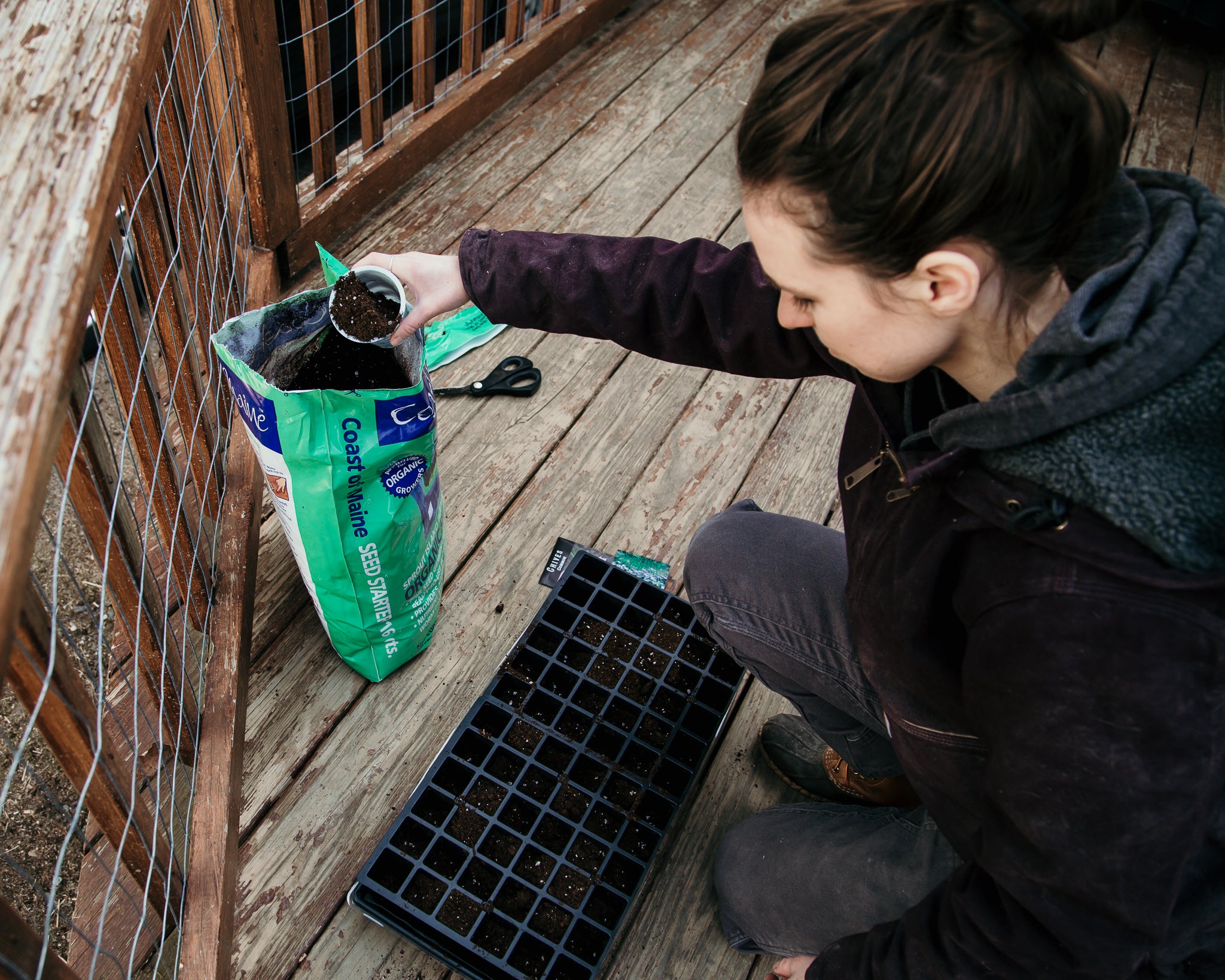
When we first decided to make the shift towards homesteading and living a more simple and sustainable life, I did as much research as I could to figure out exactly what we were getting ourselves into. I searched for people in the homesteading community that were already successfully doing what I wanted to do. I found these homesteaders through books (my personal favorite), blogs, podcasts and youtube, and I devoured every bit of advice that they had to offer. They became my mentors. I began to notice that these top modern day homesteaders share a few core attributes in common that I believe to be the key behind their success. The 5 traits of successful homesteaders are goal planning, patience, resilience, resourcefulness, and perpetually learning. These are not traits that you need to be born with, they are ones that you can learn to cultivate by making them a part of your daily routine, and eventually they will become habitual.
Goal Planning
Goal planning is crucial at every stage of homesteading. If you’re in the initial planning stages, consider what it is that you want from your homestead. Your approach to homesteading will be drastically different if you are looking to make an income vs. just wanting to become more self-sufficient.
Now that you have the big picture in mind, you can establish shorter term goals that will lead you to your overall homestead goal. We make weekly, monthly, and yearly goals to keep ourselves on track.
For example, let's say your big picture goal is to supplement your main income with money earned from egg sales. Your goal for the year might be to make an additional $700 and you estimate that it will require you to sell about 2,500 eggs. In order to sell 2,500 eggs this year, your goal for this month might be to sell 17 dozen eggs at your local farmers market. In order to sell those 17 dozen eggs at the farmers market, your goal for this week may be research how to become a vendor and complete the registration process.
The best homesteaders keep their goals
- -Realistic
- -Measurable
- -Specific
Patience:
Ask any homesteader and they will tell you, it requires a lot of patience. When you’re first getting started, It’s easy to get wrapped up in the excitement and attempt to start a bunch of new projects all at once. This almost always leads to frustration and disappointment (and sometimes, debt). Start small. Practice one new skill at a time until you master it, and then take on another.
Another lesson in patience: it has to be functional before it looks good. We all want the kind of homestead that's so stunning it could featured on the cover of Better Homes and Gardens but take a step back and evaluate what really matters; functionality. Spend your efforts on making something that works first, then later on down the line, you can focus on making it pretty.
Resilience:
Homesteading can be tough at times. With all of the unforeseen circumstances, there are so many elements that are out of our control. Despite your best efforts, sometimes things just don’t go your way. You can do everything “right” but plants die, animals get sick, milk buckets spill, it’s all a part of the lifestyle. Even the most seasoned homesteaders deal with these setbacks, but what makes them successful is their resilience. They embrace failure rather than becoming discouraged by it and push forward. It’s about being able to bounce back. If you’re the kind of person who gives up at the first roadblock, homesteading is not for you. However, resilience is something that you can develop overtime. Practice looking at each problem as a challenge, an opportunity for growth, and a lesson to be learned. Be thankful for the challenges you face because they will make you an expert. I believe the best advice comes from those who have struggled themselves.
Resourcefulness:
Homesteaders will always avoid buying something brand new if they can help it. They are resourceful and use what is available to them to make it work. Before you go out and buy something brand new, consider if its something you could maybe find used or make yourself. There are tons of great resources for finding what you need second hand. Facebook Marketplace, Craig’s List, Offer Up, Buy and Sell groups for your area, LetGo app to name a few. And you’d be surprised what gems you can find at local garage and estate sales and auctions. Look for creative solutions to the problems that you encounter on the homestead. Get to know your neighbors and community members, and you may have the opportunity to borrow or trade things.
Lifelong Learners:
Homesteading is really a journey in learning. There are so many skills to master whether its food growing and fermentation, animal raising, or artisan food crafts and so much more. There have also never been more resources available to help you learn these skills. I watch youtube tutorials and read homesteading books and blog articles daily. I’ve also found that there are some things that can only be learned by doing. I recommend choosing 2-3 new skills to learn for each season. For example, you could learn how to make a sourdough starter in the winter, learn how to sow seeds indoors in the spring, learn how to can food for preservation in the summer, and learn to make your own soap in the fall. Mastering new skills throughout the year will shape you into a well rounded homesteader.


